Do I really know what it is that I’ve been aiming for all this time? So I want to try and write down my thinking on this ideal here today.
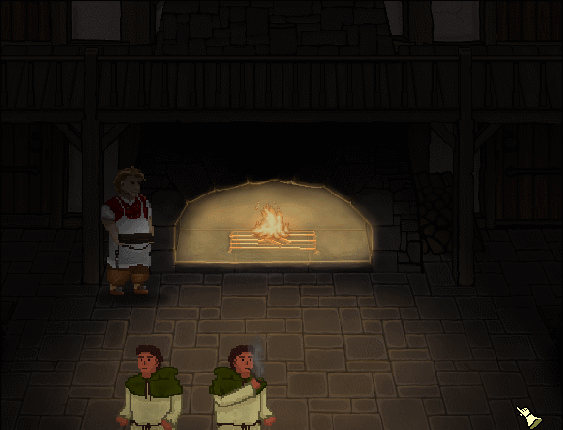
Things in Worlds
Excuse me while I get philosophical for a little bit (I will return to talking about games afterwards, I promise!) A certain philosopher once said that human beings are not “in” the world the way a thing is “in” a box. A world is not anything like a container to begin with. It’s maybe better thought of as something like a “meaningful context.” Say what? Well, a shoe can be “in” a box, but being in a box does nothing for the shoe. However, a musical note gains its significance for being “in” a song. A word, its significance for being “in” a sentence. And in turn a sentence gains its significance for being “in” a paragraph, a page, or a book. The whole informs the part, and the part participates in the whole.
And things shown in art point elsewhere too
And so it is with us and the world. Not because we ourselves are like notes or sentences per se, but because the things we encounter are always things of the world. That is, they have meaning for us, because they appear within the greater context of the world. They are always pointing in a way to something else. Chairs and tables speak of people who sit at them, and eat and drink. Fires speak of the cold that needs chasing away. Shoes are for feet. Feet are for walking. We walk to go fetch things, to see a friend, to return home. And so on, in a quite infinite manner. This greater context of meaning is the “world” in which we find ourselves, within which we live.
“Thingy” Game Worlds
So that is all well and good, but what does it have to do with computer games? Well, obviously enough, computer games have worlds too. Sometimes these worlds are barely deserving of the name. We have a simple, limited context, where we encounter everything there is only in a certain particularly circumscribed way, as the result of the narrow focus of the game. The car races on the road. The gun shoots the bad guy. There is a context for the different objects which we find or use in the game. That context is the game’s “world” in a sense, but only just. On the other hand there are games which have extremely detailed and elaborate “worlds” which mimic the world we live in. These worlds have mountains, forests, rivers and oceans; people, kingdoms, towns, and roads; tables, chairs, beds and plates.
An example of a game with such an elaborate world is my favorite game of all time, Ultima 7. The realization of the world of Brittania in this installment is arguably unmatched in the series (and for that matter in the history of RPGs in certain respects). For example, if you were to enter any one of the seven(!) odd towns of Britannia you can find a good dozen or so unique characters, each with their own back story, relationships, home, and schedule. Exploring the sprawling city of Britain for the very first time was an incredible experience; visiting all the shops, seeing all the houses where the NPCs went to bed at night, eating in the bustling tavern in the evening, the city seemed almost limitless in terms of the depth of what had been created. Not for nothing did Origin Systems have the logo “We Create Worlds.”
You can turn those lamp posts on and off. And those candles. And you can open those shutters, and sleep on that bed, and move those items off the table surface, and…
Yet, if I think back, the world of U7 was so engrossing for me not simply because it was “detailed” or “elaborate”. By comparison, the world of the Baldur’s Gate games is extremely detailed, and while I very much enjoyed those games, I never felt like I was “in” them in the way that I did with U7. I don’t want to use the world “immersed”, as that has connotations to do with realism. But the way in which I related to the world of U7 was qualitatively different to how I related to the worlds of Baldur’s Gate, or the early Fallout series. While those worlds felt at times like majestic backdrops to a grand story, Ultima’s world was very… “thingy”. In U7, you could walk up to a building, open the door, go inside, sit on a chair, and move the plates and bits of food around on top of the table. If it was somebody else’s house, they might get upset at you for doing so! If it was night, you might light a candle. If you were sleepy, you could go over to the bed and have a sleep (and maybe wake somebody else up to make room first!) What I want to say is that the world was full of discrete “things”, rather than the purely visual signification of things. All of those things, together, made up a vivid, meaningful context, a true world in which you moved, in which you could take up a relation to what you saw in a more engaging way. In Baldur’s Gate, by comparison, a tavern might be far more fully visually detailed, and yet you entered by way of a loading screen, and the plates on the tables were simply drawn on them from the beginning as part of the art. And somewhere, on some level, you knew and understood that. This doesn’t diminish the beauty of what you see, but you relate to it differently. This, for me, was decisive. I simply adore U7, but I can only admire Baldur’s Gate.
The Copper Coronet has fantastic ambient sound and gorgeous art, but I couldn’t touch anything.
After Ultima, it wasn’t until the Elder Scrolls series that I was able to return to enjoying engaging, “thingy” game worlds once more. These worlds fell short of U7 in many respects. You had to go through a loading screen to enter a house, and when inside you couldn’t sit on the table. But the table did have a real plate on it. And on top of the plate was a piece of fruit. And if you wanted to you could pick them up and move them about. For the first time in a long while, I felt like I was “in” the game world in some way. Most importantly, it was at about this time that I started to have the freedom to craft the kind of game experience I really wanted thanks to mods. In Skyrim, for example, I wanted to need to eat (like in U7). So I added a mod for hunger. I also wanted to be able to get cold if I was somewhere with a lot of snow, and underdressed (like in U7, part II). So I added a mod which kept track of your temperature and wetness. I wanted to need to sleep as well, so I added a mod for that too (again, like in U7!) And, finally, I wanted to need to actually walk everywhere (… yes like in U7), so I added a mod which disabled fast travel. On top of all this I generally made combat much harder, made items weigh a lot more, and the economy be tougher…. and so on.
I’m going to take that flask, and later use it to store water I collect from rivers…
What I was chasing through all of these additions and restrictions, I gradually began to realize, was not simply a “hardcore” experience. Dark Souls is “hardcore”, but you don’t need to eat and sleep. U7, meanwhile, is not exactly “hardcore”, but does have these requirements. It also wasn’t strictly “realism” per say that I wanted. I didn’t want to need to go to the toilet in a computer game! I also didn’t want a day in game to take 24 hours. Likewise, it was fine for me that I was playing Skyrim with all the textures disabled, so that my old laptop could get decent FPS. So what was it that I was chasing? What was I after?
What I wanted was to get to really “be in” the world that was portrayed, to “live” in that world. The “thingyness” of the world was a necessary requirement for the world to really be a world that I was “in”, as opposed to a backdrop which I watched from a removed distance. Why have all the added trouble of needing to eat, to sleep, to keep warm, and to carefully choose what equipment I carry? Because those requirements would force me to take up a stronger relationship to the world which I was in. Food found in the world was not simply a decoration, or a short time heal bonus item, but… food! A bed was likewise not a decoration which symbolized a hypothetical bed… but… a bed! You know, for sleeping in? A light piece of armor was light! A heavy piece of armor was heavy! Fur boots were made of fur, and so, naturally, nice and warm… and so on and so forth. What all these added requirements were doing was helping force me to engage on a deeper level with the world of the game, as a meaningful context in which I was moving and acting. The game as a quest-line driven “story” became secondary in the extreme to the overall experience.
And then, in 2013, I found somebody developing a game which basically took all of these elements, and made them the center of the experience. I am talking, as you might have guessed, of The Long Dark. The sandbox survival mode of The Long Dark is, for some people, a tedious “walking simulator.” You traverse a frigid landscape, searching for food, gathering firewood, securing warm clothing and shelter. Your only goal is to try and live another day, until, eventually, survival becomes impossible. In this way, you are drawn into the “world” of the game in an extreme manner. While the 3D environments of some modern games are basically a backdrop for shooting a parade of goons, the environment of The Long Dark is laden with meaning. You must, by necessity, be extremely aware of what is around you, of the significance of what you can see. If the wind gets any stronger, I won’t be able to keep my fire burning. If my fire goes out, I won’t be able to stay warm. If I get cold, I’m going to get hypothermia. The snowy wind is no longer just a pretty effect, but is actually meaningful for me, the player. And so too the sunny clear day. It speaks of relief, of freedom to move, of opportunity to forage. Only in The Long Dark have I truly been happy to sit in front of a crackling digital fire, drying out my wet clothes. And so, while the Sandbox is hardly a perfectly polished and balanced game, the end experience that it achieved puts it up there with U7 for me as one of the greatest achievements (or realizations?) in gaming history.
That furniture can be broken down to harvest wood to help keep that fire going. And you can use the cloth from the cushions to help mend your torn clothing.
What Does this Mean for Innkeep?
So how does this game ideal relate back to Innkeep? It was never my intention with Innkeep to make a simulator of a fantasy inn. Simulators can be fine and fun games to be sure, and Innkeep will have some simulator elements. However, the real point for me was always to make a game where you got to be really in the space of a fantasy inn. There is no set checklist of features that can let me do this. You will not “need” to eat, drink, sleep, or keep warm in Innkeep. However the design choices I have made have been driven by the same motivation that can make such features so attractive: the construction of a meaningful context that you can inhabit.
Take, for example, the visual presentation of world so as to give a feeling of spatial location. In a first person perspective game, the player is always already spatially located “within” the world. Things are near, or far, up, or down, left or right of where the player is.
The Ultima series also had a first person spin-off, the amazing underworld series.
With a 2D game like U7, meanwhile, the player has an actual “avatar” in the world which symbolizes the player (and indeed this is the clever origin of the title of Avatar for the player in this series to begin with). And so, too, do you have your own avatar in Innkeep, a portly innkeeper who you can move about within the play space. This player character can open doors, enter and leave rooms, pick up tankards, and pour drinks. All these actions can be done by you, as though you were actually running the inn. However, where I wanted to diverge from U7 was with its isometric perspective. In a large 2D game world it makes perfect sense to use an isometric style. We have a perspective on what we see, and yet it is in a way “objective”. Everything which you see is given in the same manner. Unlike in a real 3D game with a “hovering” perspective, in 2D isometric style a chair which is near the middle of the screen is given in the same perspective as a chair which is by the edge of the screen, because what is middle and what is edge is fluid. The result though is a kind of “objectification” of what is visible. It is a view which is in the 3rd person, rather than embodied in the perspective of somebody who is in the world. That is not to say that the art can’t be charming, or that the imagination can’t bridge the gap and pull the player into the world well enough!
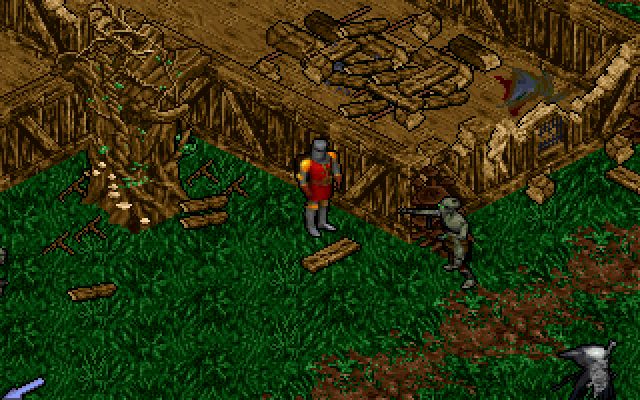
(Image from Dino's Guide to Pagan)
Ultima 8 was also satisfying “thingy”, although you could no longer lie down on beds, or sit on chairs.
With Innkeep, however, I had another option.In Innkeep, you do not travel across a large landscape. There is only really one location in the game (discounting the street outside), which is the inn itself. Because of this, I had the choice of making the view that of a fixed perspective. The idea was to bring the player closer into the space, as though you were embodied. That is, you are looking at everything from a fixed perspective, as you would in a 3D game, only from the outside, as you would with an isometric view. I’ve sometimes compared the result to being like a dollhouse. There is a middle, a left, and a right. A high and a low. And the things which you see in the play space are given in different perspectives depending on where they are. This also allows for some neat effects that are fairly unique to the style. For example, when the player enters a bedroom, the screen is not moving over to where the player is, but rather the wall which conceals the bedroom fades away, revealing what is behind it. Likewise when entering the cellar, the floor fades away, showing what is behind, from the same fixed perspective as before. Even if the “view” of the play space does move (what is shown within your screen), the perspective remains fixed and the same.
Sometimes getting the perspective right was tricky! Having everything in a giant GIMP master file helped to with identifying problems.
Along with the visual representation of the world, there were some other design choices I made which are intended to help generate the feeling of inhabiting the game space. A minimal use of UI is one of these choices. Although it has a very pragmatic motivation behind it as well (I don’t want to spend heaps of time making lots of complicated UI design!), I always wanted the player to directly interact with what it was they wanted to change (and again, I am following U7 here in this too). To give guests drinks, you go over to the tankard shelf and take a tankard. Then you go to the barrels and fill the tankard. Then you take the tankard to the guest, and give it to them. To keep the fire going you need to actually pick up the wood, and put it in the fire. Later, cooking food will require taking the different ingredients and cutting them up, combining them and using the cauldron in the kitchen. Sounds like a hassle? Maybe! And some people also thought The Long Dark was a walking simulator. But the point is that you are in the inn, actually doing all of these things that would be necessary to run the place. The work involved can then actually become a motivation to hire some NPCs to help you with these menial tasks as it gets busier. So, rather than simply hiring staff type X because you are “required” to do so (as in a simulator), you hire them because you need help! It’s just too busy to do it all by yourself! Again, as would actually be the case if you were running an inn.
I was already testing out a helper NPC in the early prototype.
Let me go back once more to that idea of “thingyness”. When you play Innkeep, the core of the game experience should enable you to be “in” in the play space. This is what the different things you encounter will be doing. You serve the drinks, prepare the food, and keep the fire going, not just as a form of clicky busywork, but because through doing so you are drawn into that meaningful context which is the little world of the inn. Within this context all the different discrete things of the game have their place, have their significance, in a way which they would not in a pure simulator.
My ultimate hope is that, over time, by way of the continual repetition of simple actions within a set location, the player can start to get a sense of being “at home” in this space. One of the challenges with games is the need to continually introduce novelty. With an RPG, novelty is provided by travelling. You move from new location to new location, and rarely do you spend extended time in any one place. You might own a house in an RPG, but you don’t really “live” in the house. In U7 I would try and do this. I would find empty houses in places, and bring in my own furniture, or even find an occupied house and “dispose” of the occupant somewhere! I’d spend time collecting books for my bookshelf, or organizing my display of equipment. But eventually the lack of novelty would force me back on the road again. In Innkeep there is nowhere to go. The novelty must come to you. Much like in Papers Please, each day will see the appearance of new characters, of new and novel situations, of different ways for the player to contribute to the overall narrative of the game world. Importantly, what this model allows for, is for the player to really come to “dwell” or inhabit the space, to feel like they know it, and belong to it, without feeling bored by the restrictions it imposes. I got something of this feeling when I played Stardew Valley, and the way in which the player tends their garden and works on their relationships with the people of the town. There is novelty, but also the repetition of the same actions, in the same space over time, such that the place the player is in becomes their space, their meaningful little world. So, this ideal of worlds that the player can really “be in”, and even “inhabit” or “dwell in” is something I would like to see more of in games. This is what I would like to try and reach with Innkeep.
(Interested in trying Ultima 7, but finding the ancient resolution a challenge? Try applying the excellent Exult modification to your game.)
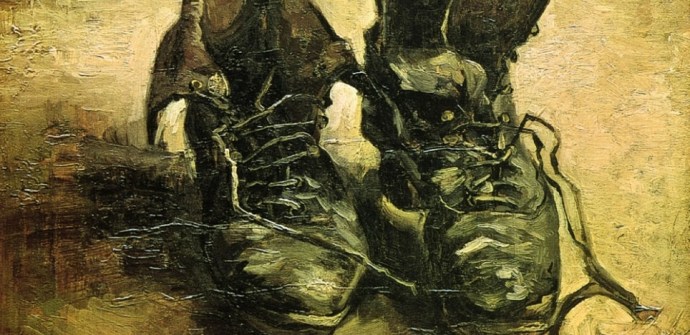
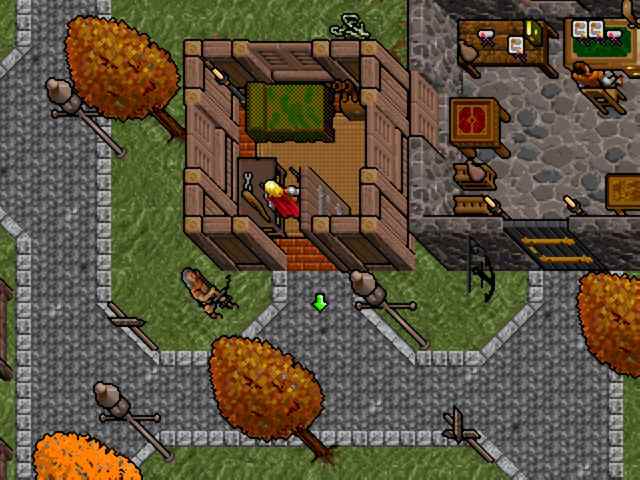
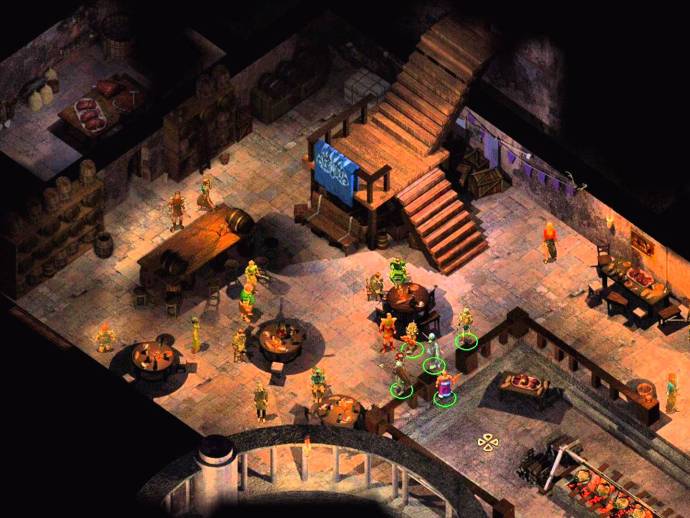
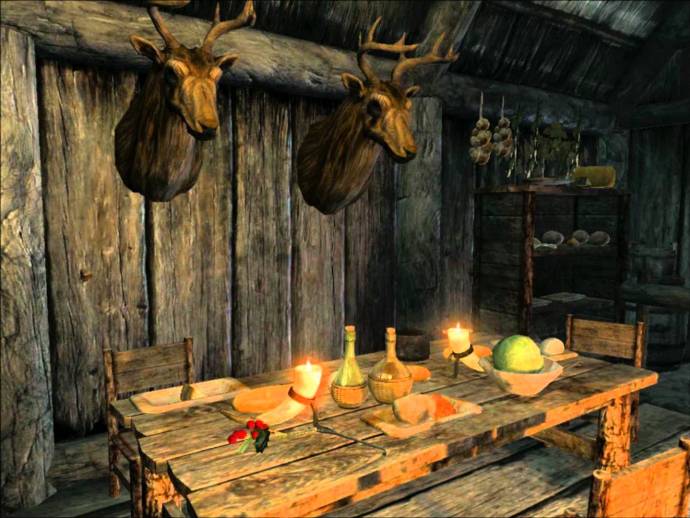
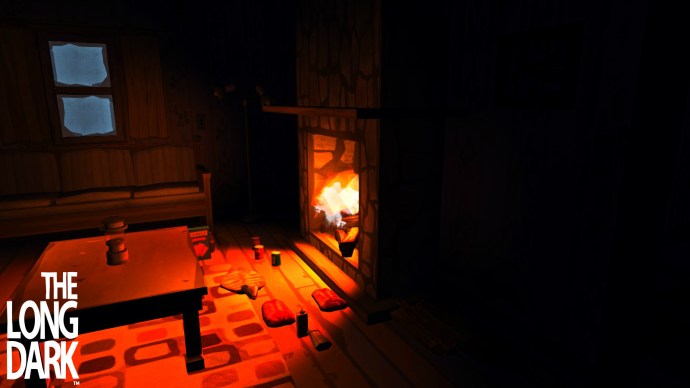

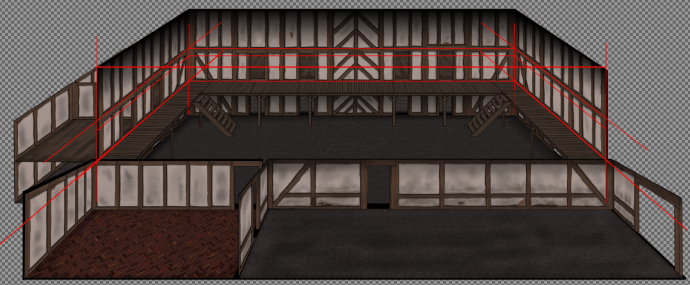
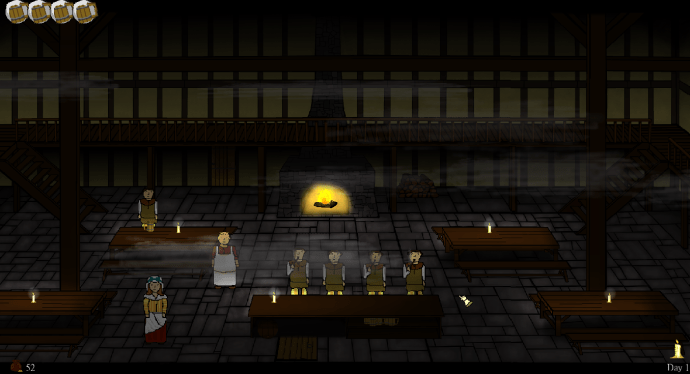
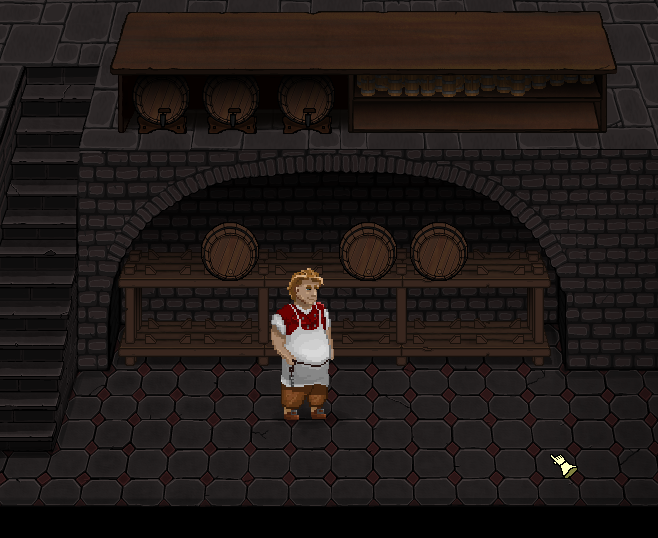




This is a truly fantastic description of something I think hasn't been explored enough in games (as evidenced by our best example of it being a game from 25 years ago). I feel it's important that you distinguished "thingyness" as relating to, but not entirely being, immersion/realism, because it's very easy to lump incidental elements of games together and call them the same thing.
I've been thinking along somewhat similar lines recently, though I'd been using words like "tactile" and "physical" to describe it. While it is somewhat nebulous, I think "thingy" is the best word for it, because the world is full of things, and things make up the world, which to me is the impression thingyness gives to a player; that there are things in a world made of things, and you're in that world.
Best of luck in integrating thingyness into Innkeep, I love seeing the progress you're making.
Thank you very much for that reply. Goodness I didn't even spot it down here. IndieDB needs some kind of warning system! Yes I'm still not so happy with the word "thingy" hehe,, but oh well.